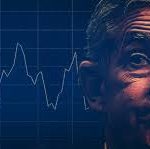When Gods Play Chess
Before we embark on the journey of finding your own edge, let’s pause and imagine you are a blank sheet of paper. You have never seen the game of trading before, you have never read a book on the topic nor seen any educational video. If you would come to the game and perceive it without any rules, limits, and expectations, what would you see? In the short video down below, Richard Feynmann, an extraordinary scientist and great teacher known also as a “great explainer”, talks about the game of chess through the lens of a blank sheet of paper. Like in our example, imagine you have never seen the game of chess before but you want to understand how to play the game. What would the process of figuring that out feel like? How long would it take you to understand the game of chess? How would you feel during the process of learning? Watch this short masterpiece of an analogy in action.
So what drives you forward to understand the game? To truly understand the game in the long run, when all motivation fuel of “making a big buck” has been depleted while you have been searching for the edge? It is your inner curiosity and ability to sustain a constant flux between states of breakthrough, confusion, and frustration. The curiosity drives the eagerness to understand the part that does not fit. The rules keep on changing as you move forward in your deeper understanding of the game. Sudden changes and shifts that force you to investigate the game more and more and expand your experience. Brilliant moments of integrations when everything is pulled together into unification and turns out to be simpler than before. That is the sustainable path in this game, the never-ending curiosity that can give you fuel in the long run.
Shallow vs Deep Understanding
It is these moments of expansion, integration, and simplification that over time perfects your edge. An iterative process that can’t be simply skipped very well described by Bogdan’s article: “A Trader’s Education: The Right System At The Right Time”. Although the path from the outside looks simple, “I just learn how to trade and I will earn money”, the process of learning is much more complicated and followed by many moments of breakthroughs as well as reality check frustrations. It can be well described by the frustration/satisfaction curve:
The problem many people face in the process of developing their own edge and deeper understanding is their apprentice incompetence. What do I mean by that? Since trading is marketed and perceived as “follow these steps and you can become a successful trader”, you are misled into believing that learning the trick leads to success. Oftentimes people are super pumped after completing our career program, eager to jump in the market and trade. But they fail to recognize that by completing the program we have given them all the tools we know of on which they can build their own edge and that deeper understanding after they have completed the course. That it all begins after the completion and not ends at completion! This failure to recognize that your understanding is shallow and how much it takes to make it deeper and integrated can be described as the apprentice incompetence. Process in which you oscillate in your learning journey through the states of shallow understanding and moments of satisfaction to the moments of despair when your understanding is tested and you know you must dig deeper to improve it. It is about how you construct the learning iteration cycles so you can gain as much deeper understanding of the game as you can.
Path Towards The Singularity Of An Edge
The idea behind singularity is that eventually, all things we experience will exponentially snowball into one deep integrated experience. Although singularity might be extreme, Richard Feynman’s earlier explanation about the iterative process of integrating that deeper knowledge leads eventually to grander and simpler understanding, something that earlier seemed impossible has now become obvious and subconsciously integrated.
Many times on the trading floor we have numerous discussions about the development of one’s own edge and each one of us is coming through our own frustration/satisfaction curve at a different pace. We are all positioned somewhere on the curve, finding both joy and suffering in each cycle. These discussions reveal one crystal clear thing and that is that edge is never one or two tricks or some dark algo trading secret. If you accept the premise that essentially you and your learning approach is your edge, that you are the edge, you can recognize that everything you do affects how successfully you are gonna trade and eventually make it in trading. From sleep to your diet. From room temperature to testosterone-cortisol balance in your body. From your daily debrief to weekend deep reflections. From constant self-awareness during the trading hours to the beliefs formed during your childhood that run your decision making in trading that you are not even aware of and many many other aspects. So you might eventually ask here how deep is the rabbit hole of an edge? I think this quote summarizes it nicely:

And just as buying a tennis racket does not make you Roger Federer, clicking a mouse and making a trade does not make you a trader. Only the application of the constant process of perfecting your game from all angles, like an elite athlete, leads to the eventual singularity of an edge.
What’s Next?
So how can one practically do all of what has been mentioned? How can one differentiate between the shallow and the deep understanding while being objective about the journey? By having the courage to ask the hard questions and set truthful expectations. By willingness to hear the hard answers. What do I mean by that? Let’s use a sports analogy that can describe what the right setting of the truthful expectation actually means. Anyone who has played a sport at the competitive level would tell you, that in order to develop a deeper skill, one must put thousands of hours of deliberate practice into it. If you ask any pro-tennis player how long did it take him or her to develop that amazing down the line forehand, you would probably get an answer by which you might get discouraged. So why do we think that trading is any different? Mainly because the industry wants us to believe that trading is easy. But anything in life that is easy can have rarely the edge that lasts. Building that amazing down the line forehand is the deep work the tennis player must have gone through to develop that specific stroke. The same goes for your position management, selecting your asymmetrical access point into your trade, your ability to deal with emotions in realtime, and 1000 other things that must be all playing together like a symphony. Therefore, I encourage you to ask the hard questions that will get you closer to the truth:
- Which part of my game (specific trading skill) is built on deep understanding and which part of my game is built on shallow understanding? How can I recognize the difference between the two?
- Are my expectations about the journey of becoming a trader correctly set? How did I set the expectations about the difficulty of building specific trading skill?
- What do I do on a daily basis, religiously, to deepen my understanding of the specific trading skill?
By answering these questions you might be able to ease the pressure of wanting to succeed quickly, wanting to find a quick shortcut to riches, and start focusing on the right things building that deeper understanding.
It is the integration of deep vs shallow understanding, developing every aspect of your life into one singular edge that is YOUR OWN while remembering that in the journey you will be cycling between phases of frustration and satisfactory breakthroughs. Understanding that embarking on the journey of a trader can be one of the biggest adventures you can take in life. An adventure that will take you to places far beyond all your expectations and change your life paradigm. Many times these places can look very dark and be filled with frustration and disbelief if it is all worth it but in retrospect one day, no matter how it all ends, they can be one of the most important experiences that formed your life. The life that makes you proud that you were able to face the challenges of the trading arena, one of the most competitive arenas on Earth.




